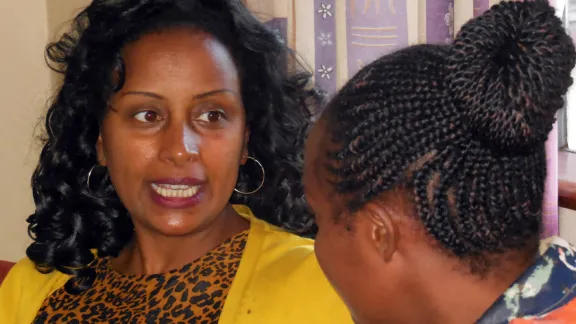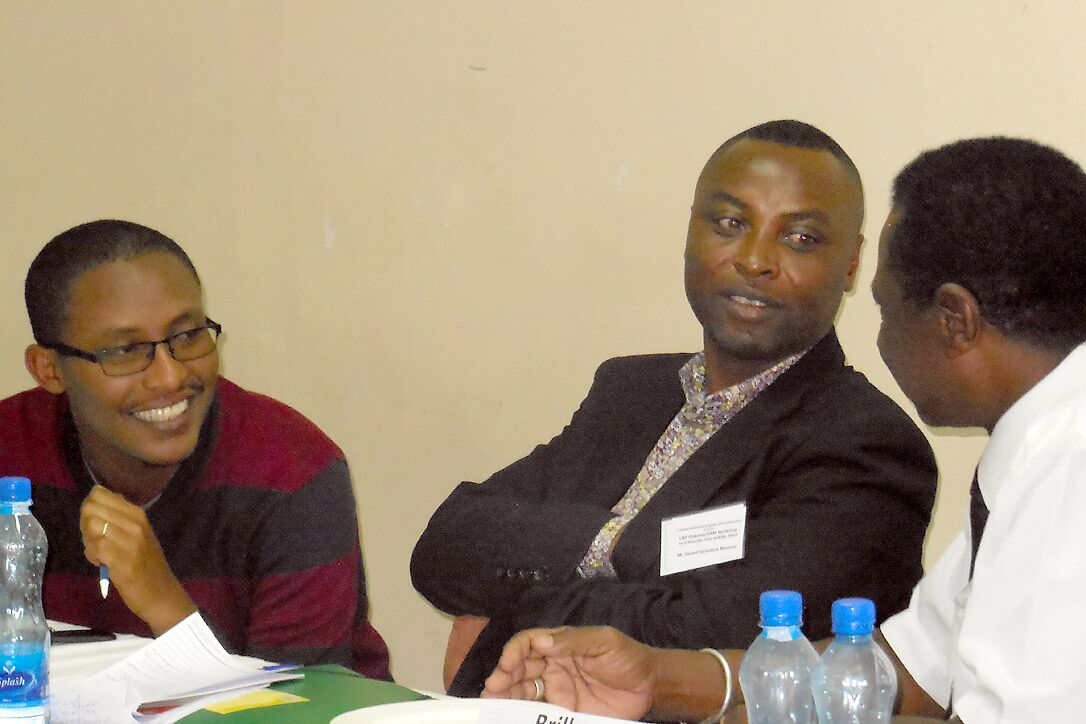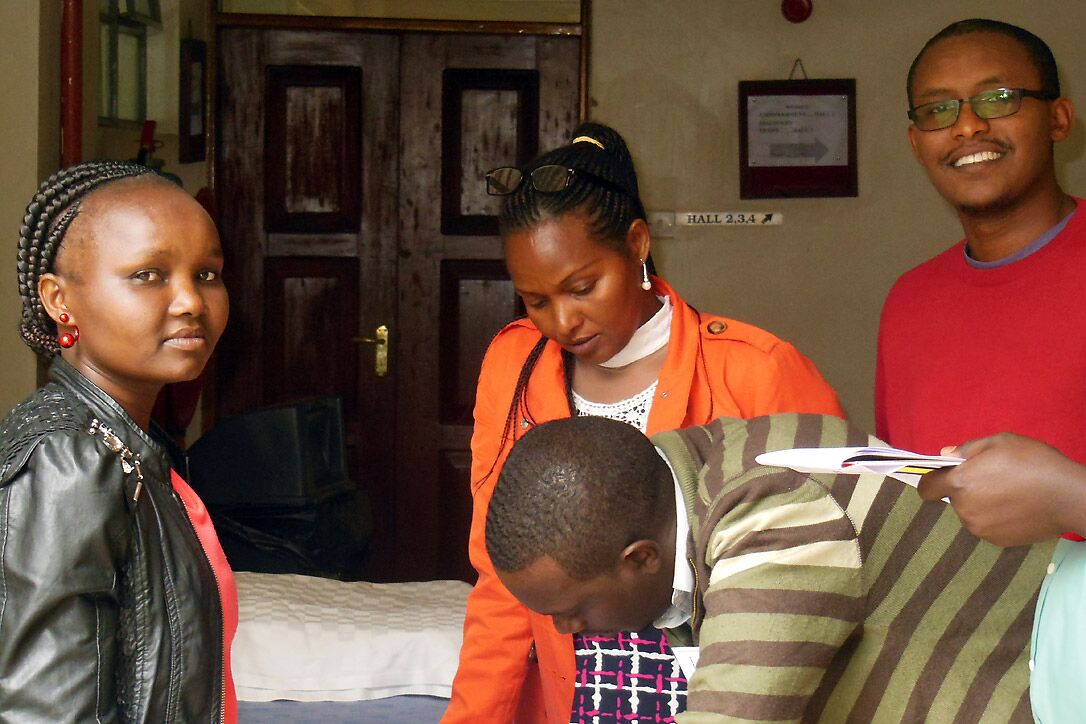
Genet Girma Eshete of Ethiopia talks to another particpant during the LWF Diakonia and HRM workshop in Nairobi. Photo: LWF/Afram Pete
LWF human resource management training for churches in Central and East Africa
At a recent workshop focusing on empowerment, transformation and innovative ways of carrying out diaconal work, participants from LWF member churches in central and east Africa discussed ways to improve human resource management, share mutual expertise and mobilize local resources to fight poverty and economic injustices linked to the Sustainable Development Goals.
Jonathan Kapanga from the Kenya Evangelical Lutheran Church (KELC) is keen to build on the diaconal work carried out in his country.
“For several years now, we have carried out a lot of good work throughout the country on peace building, care for people affected by HIV and AIDS, projects on food security and economic empowerment, and now looking at how modern communication technology can positively affect the way we carry out our diaconal work. We are eager to share these experiences with our brothers and sisters in the sub-region,” said Kapanga.

Tsegahun Assefa of Ethiopia, Gerald Muvunyi of Rwanda and Rev. Brillant de l’Or Retsanga Tovondray of Madagascar share a light moment during the workshop
Kapanga was one of the 25 diaconal workers and church leaders from the eight LWF member churches in the central and east Africa group of Lutheran churches, LUCCEA, which includes the Democratic Republic of Congo, Eritrea, Ethiopia, Kenya, Madagascar, Rwanda and Tanzania who took part in the LWF-led workshop on Human and Institutional Capacity Development (HICD).
In my church, for example, we have deep rooted understanding of holistic approach, whereby proclamation and service are seen as integral parts; and this guides our diaconal work.
The participants shared practical experiences on how the work of churches is helping to improve the lives of the most vulnerable people through health delivery in hospitals and other institutions; education in schools, seminaries and universities; and food production through different agricultural projects.
Strong backing for diaconal work
“Churches in Africa are making strides in terms of management and administration but there is urgent need to strengthen leadership that is based on the commonly shared Christian values of compassion, accountability and integrity,” said LWF consultant Prof William Ogara, one of the workshop’s facilitators.
Ogara said there is a growing number of local philanthropists who are ready to support diaconal work. “When churches are credible managers of human and financial resources this will attract more local donors,” he added. He encouraged churches to “start training youth early for leadership by inculcating values of hard work, discipline, integrity and accountability.” He went on to say, “they can only learn these virtues if their mentors set a good example.”

Young people take part in group work in the LWF diakonia and human resource management workshop in Nairobi
One of the questions raised was whether the social service delivery by churches should be seen as an opportunity to evangelize. “In my church, for example, we have deep rooted understanding of holistic approach where proclamation and service are seen as integral parts; and this guides our diaconal work,” noted Ms Genet Eshete of the Ethiopian Evangelical Church Mekane Yesus.
Abebe Yohannes Saketa, HICD program coordinator at the LWF Department for Mission and Development (DMD) explained LWF’s understanding of diakonia as “an action of love expressed through serving the neighbor.”
This perspective, Saketa added, “allows member churches and diaconal practitioners to benefit from the wealth of theological and practical resources available at different levels of the communion, and encourage them to serve all people irrespective of race, gender or religion. This is our way of living out the gospel of Jesus Christ, by being witnesses of God’s love to all people.”
The sub-regional training was part of a series provided by DMD for 21 member churches in Africa, Asia and Latin America and the Caribbean, focusing especially on empowerment, transformation and innovative ways of carrying out diaconal work. The workshops incorporate theological perspectives on the understanding and practice of diakonia.
Photos and story by Afram Pete, regional coordinator, African Lutheran Communication and Information Network


